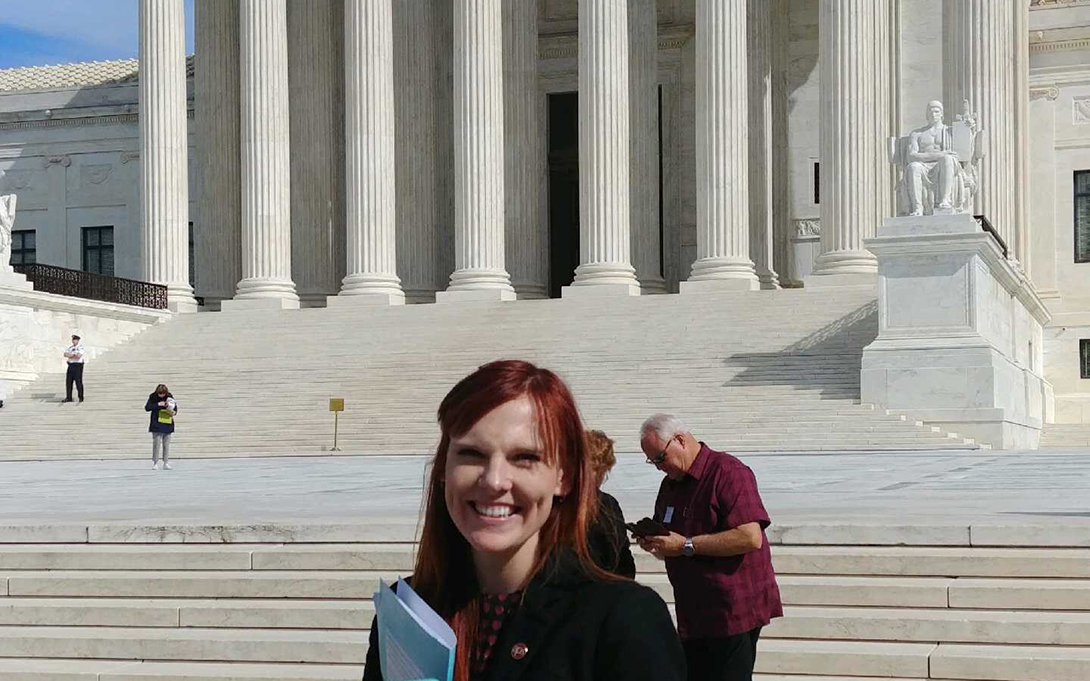
by Elizabeth A. Ronan, Molecular and Integrative Physiology Ph.D. Candidate and STPP certificate student
Political lobbying is not an activity I would have initially thought to associate with a STEM career. Yet this past October I found myself, a doctoral candidate in Molecular and Integrative Physiology, sitting with a team of scientists across from lawmakers on Capitol Hill. We discussed current legislation with the potential to drastically impact the progress of scientific research. This demonstrated to me how critical effective science communication is, not just for engaging with the general public, but to ensure that legislation is created that promotes rather than hinders scientific advancement.
How exactly does a scientist go about meeting with lawmakers on Capitol Hill? My opportunity was made possible thanks to U-M physiology professor Dan Michele, Ph.D., along with funding from the STPP professional development grant. This visit was organized by the American Physiological Society (APS), a nonprofit society devoted to advancing scientific education and research. Large societies like the APS typically have specialized subcommittees to advance particular interest areas, achieved in part by actively lobbying Congress. The purpose of our visit was to provide lawmakers with scientific insight into current legislation regarding research funding and regulation.
The APS ensured our adequate preparation by supplying us with summaries of the current legislation relevant to access and funding of biomedical research studies. Our group, comprised of nearly a dozen scientists from both academia and industry, came together from across the country. Upon arriving, we separated into small groups of 3 to 4 scientists in order to meet with legislators from our states. In this way, we met with lawmakers on behalf of the APS, but also as individual constituents.
During the meetings, we emphasized our desire and willingness to be a resource for any questions or concerns regarding scientific research. We explained how crucial it is for scientists to have access to the appropriate research models in order to make progress and advance human health. I discussed my research using C. elegans – a tiny roundworm – to study how sensation influences behavior and genetic programs that affect health and aging. Selection of the appropriate model organism for a study is not a trivial process, and requires thoughtful consideration to determine the best approach. Legislation that limits autonomy for scientists to make these decisions will impede scientific progress and ultimately the advancement of medicine.
By answering questions that lawmakers had about scientific research practices, I gained a new appreciation for how influential effective science communication can be in shaping science policy. There is a significant knowledge gap in the public perception of how rigorously regulated scientific research is. We found the lawmakers to be very open to hearing a scientist’s perspective on research-related legislation, and it was readily apparent that scientists do not meet with them nearly as often as other advocacy groups. I encourage scientists and science policy advocates to engage with our legislators more. Professional societies offer an excellent starting point to seek out opportunities.
